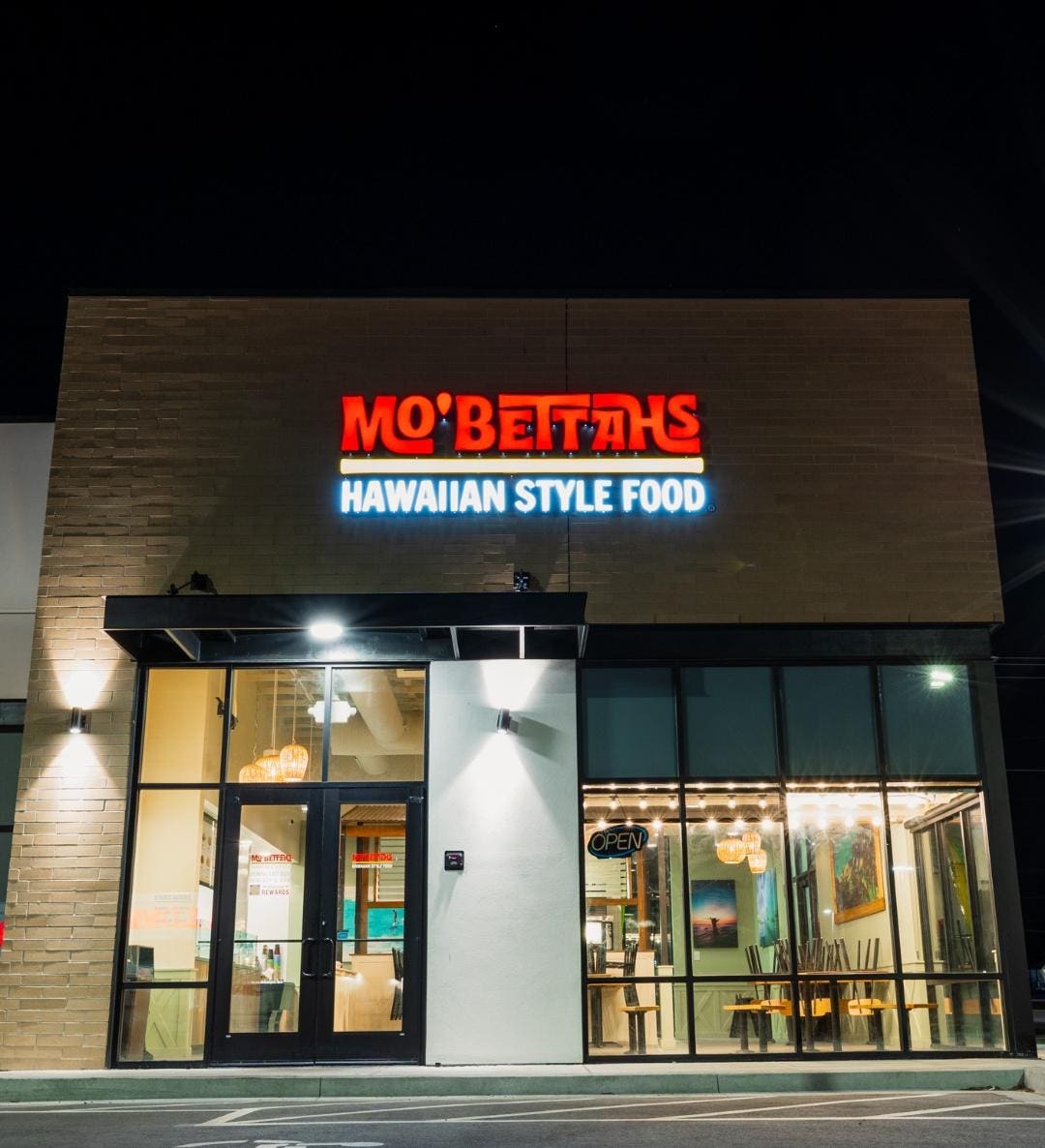Two Hawaiian brothers from Oahu, Kalani and Kimo Mack moved from Hawaii to Bountiful, Utah and decided to open a restaurant Mo’ Bettahs Steaks, specializing in their native food in 2008. They figured steak would draw in the Utah crowd. But soon they recognized that teriyaki chicken was the entrée of choice, and quickly dropped the “steaks” from the name, and changed it to Mo’ Bettahs.
Why name it Mo’ Bettah’s? Kalani Mack said it’s an old Hawaiian expression that means “something great, excellent, the best. Now we overhear our customers say, ‘We need to get our Mo’ Bettah’s on.’”
Kalani Mack describes their menu as offering “Hawaiian-style food” since Hawaii pulls from so many cultures including Asian and Filipino influences. Hence its teriyaki chicken is Asian-inspired and pasteles are like tamales.
Moreover, Hawaiian-style food specializes in rice. “Rice is served with everything,” explained Kimo Mack. It’s rice served with the protein of the guest’s choice.
Grown to 44 Restaurants
Fifteen years later, Mo’ Bettahs has grown to 44 restaurants in six states, and all are company-owned. What has enabled them to grow without turning to franchising was an investment from the founders of the private equity, restaurant investment Savory Fund, Andrew and Shauna Smith, based in Lehi, Utah, in 2017, which invests in emerging restaurant concepts such as Hash Kitchen and Pincho Burgers & Kebab.
Kimo Mack said that Savory Fund has injected capital but also “supported us with HR, accounting, marketing, development and strategies, all while valuing our vision for the brand.”
Its five states beside Utah include Idaho, Texas, Oklahoma, Kansas and Missouri. Its 45th store opens in August, and there are 10 stores in the pipeline including two new markets, Nevada and Arizona.
When the Macks’ first opened their eatery, they used the capital gained from Kimo and his wife Tam’s selling their house in Hawaii as a loan to start the business. Kalani admits that at the outset their “marketing budget was zero.” They tapped the Facebook platform, which was then free, as a way to get the word out.
People from Utah Know Hawaiian Food
When they first opened in Utah, part of what made the eatery successful, Kalani Mack said, was so many people vacationed in Hawaii or were Mormons on missionary assignments there that they missed the taste of its food when they returned home. Both Macks are Mormon’s as well.
Its menu specializes in teriyaki chicken and shredded pork, and that old standby, macaroni salad. Its most popular drinks are Hawaiian Sun and a Hawaiian drink of passion fruit, orange and guava, called POG.
They opened their second Mo’ Bettah’s in Salt Lake City in 2009, with the profits from the first one. Because the recession was in full swing, and landlords were hurting, “We got a killer deal on a restaurant space in downtown Salt Lake, from a restaurant that closed, which included tables, chairs and equipment and even oil still in the fryer,” noted Kalani Mack, who is 54, one year older than Kimo.
In fact, Kimo vows that they opened their second and third locations for $25,000 and less than that for the third, or on a shoestring budget.
Then they expanded to Logan, Utah, and Lehi, Utah. “We’ve still never taken out a loan,” Kalani noted. “We paid our bills on time, saved enough money until we could open the next store,” he said.
The Private Equity Fund Provided the Boost
Finally, Kimo Mack was introduced to the owners of the Savory Fund by a business associate. He pitched them and said, “Our business is primed and ready to grow but I don’t have the people to support it.”
Savory Fund acquired a majority interest, and like most private equity companies, is expected to sell, or “cash-out,” though there’s no set date on when that will happen.,
Kimo Mack declared, “They’ve been clear about that from the first meeting. They take a brand that has three to ten units, grow them to 50, and then exit.” Their plan is to hit 50 eateries by the end of the year and then add another 14 or so in 2024.
Kimo Mack added that “As the chapter with Savory Fund comes to an end, we will definitely find a new partner that will take us to the next echelon of growth.”
Asked how two brothers cooperate to run a growing restaurant chain, Kalani responds that he leans on the caring side and tends to focus on managing people and Kami is more analytical and specializes in fiscal issues. “Together we make up one person,” he quipped.
Asked the keys to its future success, Kimo Mack replied, 1) Keep the product strong and consistent, 2) Manage our costs, 3) Manage the people. He added, if you can’t accomplish all three of those, the business is out of balance. And then Kalani added one more item: 4) Keep it authentic.
Read the full article here





